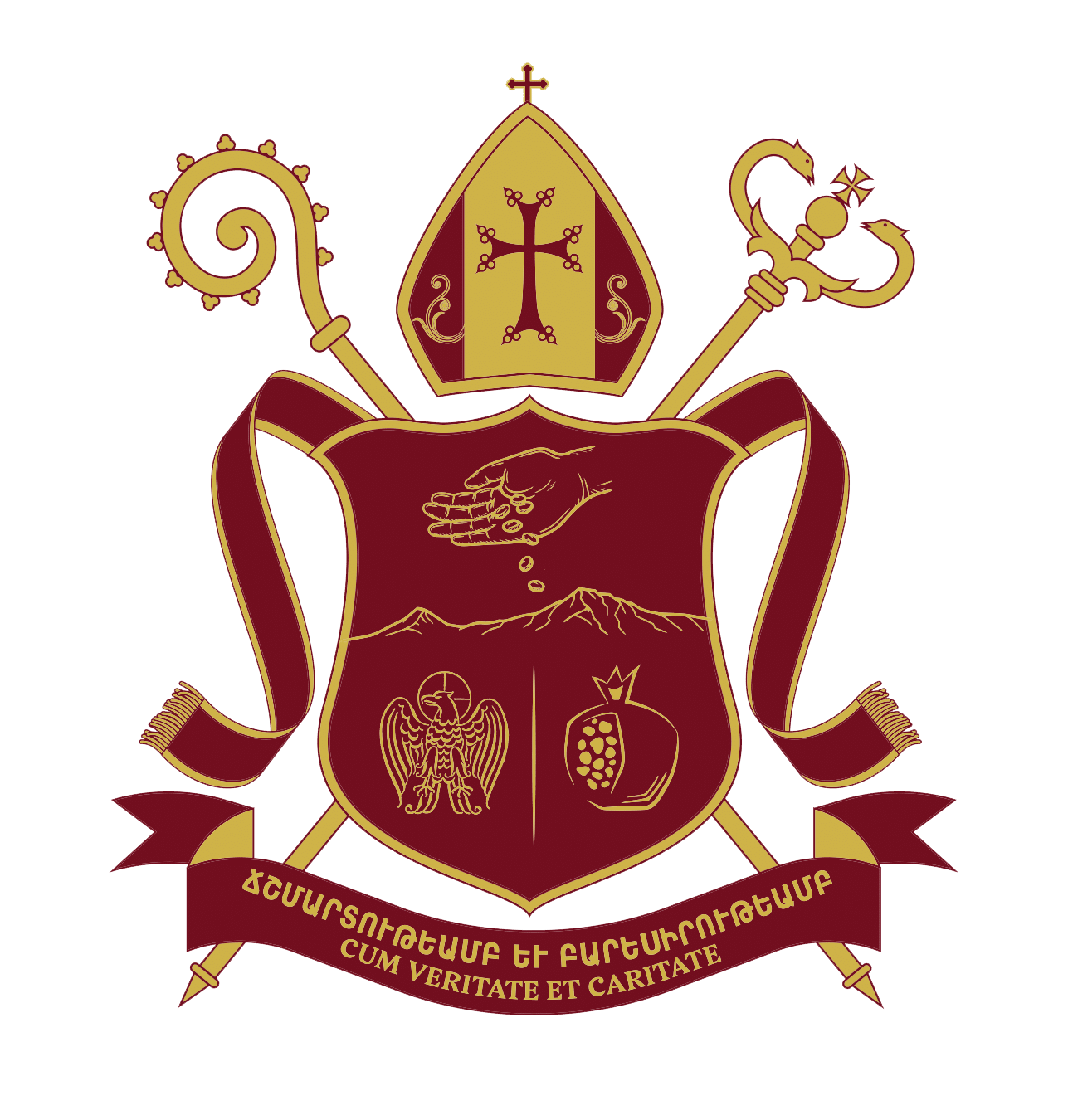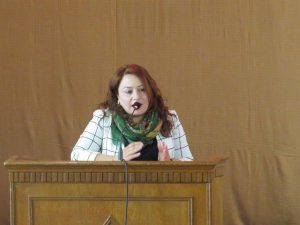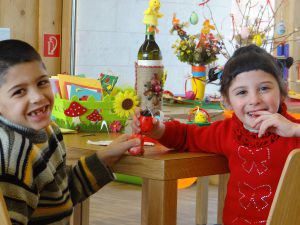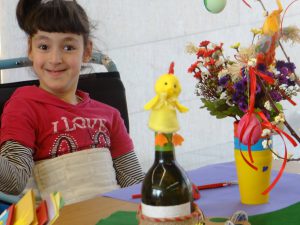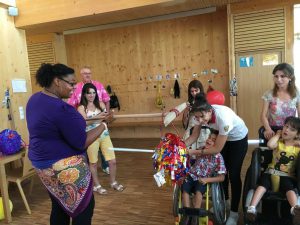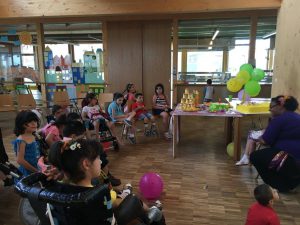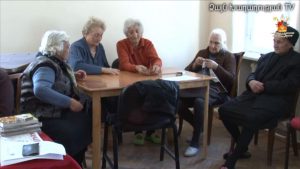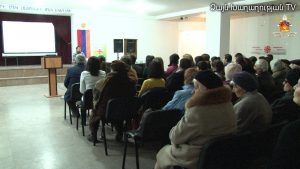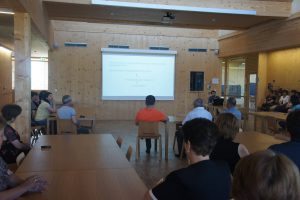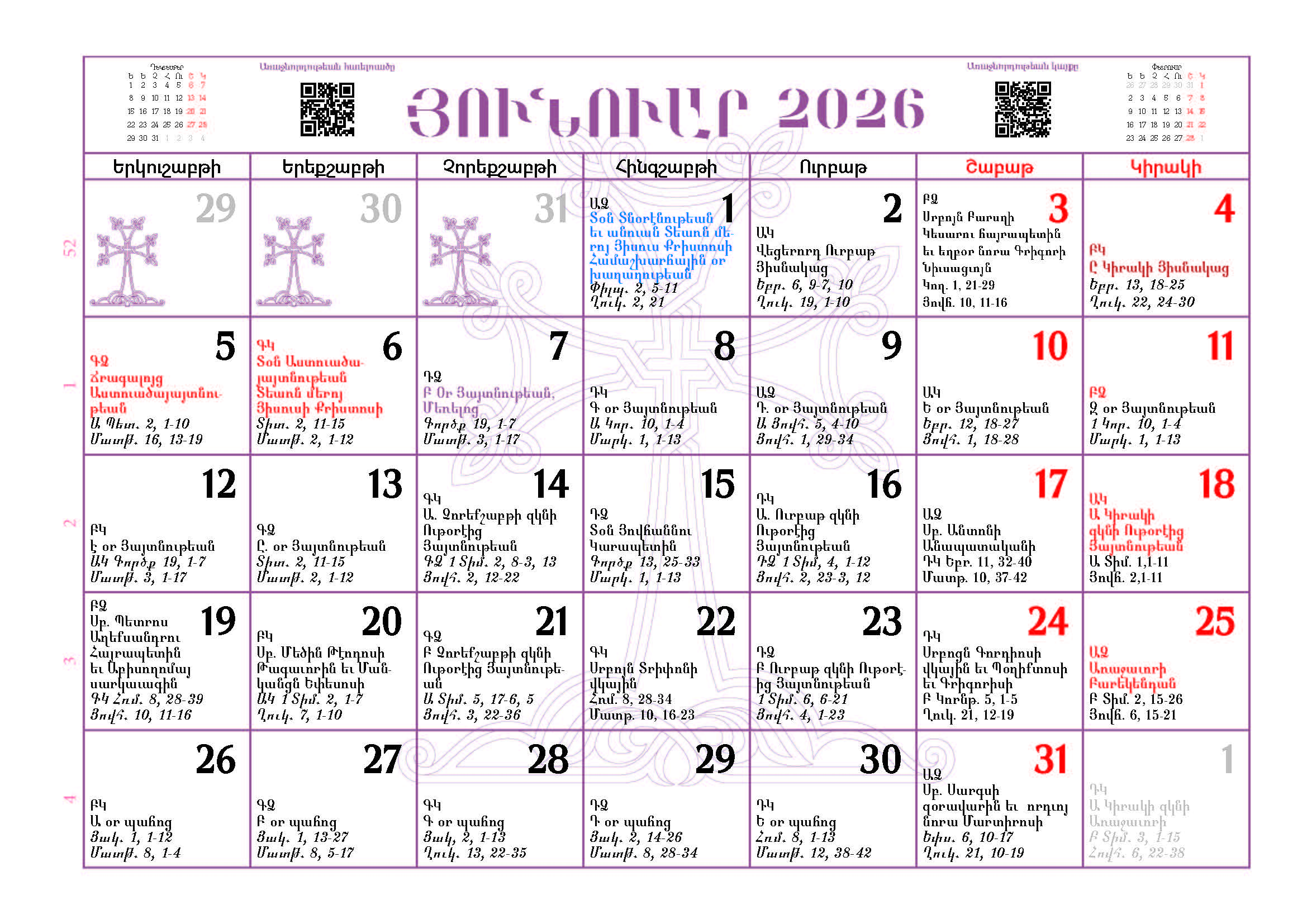- Armenian Caritas’ social centre Emili Aregak for children with disabilities
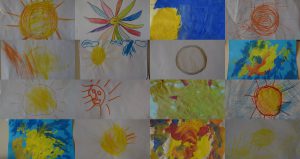
The Church must be “a field hospital” for all the people in need: Pope Francis.
14 August, 2016
This material is kindly provided by the PR centre of Armenian Caritas (PR Officer Marina Bazaeva)
“Our philosophy is that every single child has the right to attend school and receive education. And that includes disabled kids too,” says Tigranuhi Akopyan , director of Armenian Caritas’ day care centre for children with multiple disabilities “Emili Aregak”. A joint project of Caritas Vorarlberg (Caritas Austria) and Armenian Caritas.
In the centre, specialised pedagogues, therapists and trained volunteers attend some 60 children from age 3 to 18. They help them to become as independent as possible to be capable to attend regular school. To achieve this, they focus on enabling the children to deal on their own with basic everyday activities like going to the bathroom or eating. They also invest a lot in strengthening the children’s self-esteem and overcome the unease feeling of “being stared at” by others.
Being disabled in Armenia is tantamount to facing many cultural taboos and preconceptions that pile up into, sometimes, insurmountable hinders and social exclusion. “The mothers of these kids suffer much from that. In Armenia, many still believe that it is the mother’s fault if a child is born with a disability. It is not unusual that the father abandons the mother and their child on that ground. When this happens, these women and children become very vulnerable, they are condemn to poverty and exclusion,” explains Tigranuhi.
Emili Aregak (which means Emil’s little sun) is there for these children and parents. In accordance to Caritas’ preferential option for the poorest, the children are selected on the basis of their family’s socio-economic situation and of the level of disability of the children. The more disability the child has, the more difficulties she or he will encounter to access school and, subsequently, the more the child will be in need of the training that the centre provides.
However, this does not mean that other children are not welcomed. In the spirit of Caritas, the centre welcomes every children that comes to Emili Aregak. Although they cannot jump into already existing groups, “they can come and we try to provide some specific service for them depending on available time. But we cannot break the groups. Therefore, they are put in a waiting list,” says Tigranuhi and clarifies that “we make it very clear for everyone that we are not here to substitute school. We are here to make the kids as self-sufficient as possible for them to be capable to go to school”.
Health, music, arts and friendship at the heart of the pedagogy
The centre provides a multitude of services that are pivotal for the integral development of the children. It also supports their parents to overcome the taboos they are confronted to and cope with the harsh negotiations with schools, which are all too often reluctant to take in disabled children in their premises.
One would think that the situation is not easy for the schools. They are often located in totally inadequate buildings that are barely adapted for children without disabilities. They are not adapted to facilitate the mobility and access for disabled children. They lack human resources to bring the children to school and back home in a safe way. Most of the teachers are not prepared to interact with disabled children. There are many barriers indeed. However, Tigranuhi strongly believe that this barriers are just details compared with the cultural taboos. “Yes, the schools are in bad shape, but taking these kids in wouldn’t require anything that good will and true commitment to their right to education. We are used to dealing with tough conditions in Armenia, we know what it means to be flexible and adapt. It is all a matter of will”.
Health is very important for everyone. A healthy body and mind is better fit to learn and work. Therefore, Tigranuhi makes a point of honour that the children coming to the centre are adequately accompanied by a team of physiotherapist, equipped with top modern equipment donated by Caritas Vorberg in Austria. “Sometimes, you can feel that it is hard for them, but their will is made of steel. These kids are like superheroes,” says Gurgen Sargsyan, a physiotherapist at the centre.
Quality food is another component of the health equation. Most of the children come from very poor families that cannot afford nutritious food. This impacts both their physical health and capacity of learning. Tigranui explains that the centre provides “breakfast and lunch. We buy our food from local producers, all production in the region is bio. Some mothers volunteer in the kitchen of the centre and prepare the meals.”
Hygiene is also taken into account. Especially in the winter when weather conditions can be very rude with freezing temperatures of 20 to 25 celsius below zero. Heating costs eat up almost all the available money of the average population. This situation is extremely hard for the poor, and poor families with disabled membres in particular. The centre is equipped with 4 bathroom and special equipment to lift kids into the bath tube.
“Through music, kids can express so many things that their disability impedes them to express with words. It requires a big amount of patience and tenderness to interact with them. And when you see them playing and smiling, you know that the time invested to reach that moment was really worthwile!” Gaor is a music therapist, specialised in children with disabilities. She helps them to build their self-confidence through musical achievement. They become self-conscious about their capacity to achieve tasks on their own.
Being part of a group of people that support each other and care about you for who you are is a natural necessity for every human being. As social beings, we need to feel that we belong to a community, a circle of friends, a family. The animators of the centre – supported by trained volunteers – organise regular social activities that foster cooperation and joint celebration among the children. “Celebrating together their achievements is both a recognition of their work and a strong confirmation that they are not alone, that they have friends who care about them,” this is a quote for any of the animators.
Creative workshops using natural elements such as stones, wood, straw or clay help the children to develop their senses. The touch of different textures, the smell of the dry straw or the freshly cut wood, the perception of colours and shapes. It also help them to develop and train their motoric capacity. All important skills to attend school in a nearby future. “I’ve worked with talented disabled children before in Argentina and it was great. But there is something here in Gyumri that makes these children so special. Maybe it’s their fantastic strength and bottomless optimism in face of the obstacles and tough conditions they face in their everyday life. Whatever it is, it makes this job the best job of the world!” says Ezequiel, specialised in education for disabled children.
Emil’s little sun. Who is Emil?
The centre is called Emil’s Little sun. As a small project Aregak (the Little Sun) grew into a state of art building through generous donation of Emil Nachbaur.
Having lived in a wheelchair for more than 40 years, Emil Nachbauer wanted to help children with disabilities to live a better life. He became a pioneers in establishing this centre for the support of children with multiple disabilities while donating the first big amount for this project. As a gratitude to his generosity and continuous support from the very beginning of the construction the centre was named Emil’s Little Sun (Emili Aregak in Armenian).
The construction of Emil’s Little Sun is Emil Nachbaur’s way of giving back to others after leading a fulfilling life despite his disability. His conviction motivated numerous people and companies in Vorarlberg, Austria to join the idea. Among them was the architect Richard Nikolussi.
Richard Nikolussi designed the wonderful building of Emili Aregak. Beyond its innovation, the building reflects Caritas’ love for people. Emili Aregak is a flagship project in many ways. With its photovoltaic system which is the largest in the Caucasus and a geothermal heat pump, the centre is a successful example of sustainable construction. Covering an area of 1,600 square meters, the centre can accommodate therapeutic rooms, workshops, seminar rooms and in the heart of the house is a place of encounter.
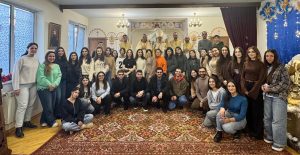 Founding General Assembly of the Armenian Catholic Youth Union
Founding General Assembly of the Armenian Catholic Youth Union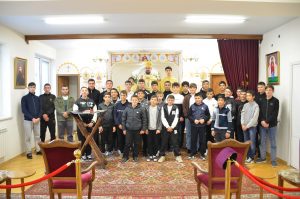 Trainings for Ministrants of Holy Liturgy
Trainings for Ministrants of Holy Liturgy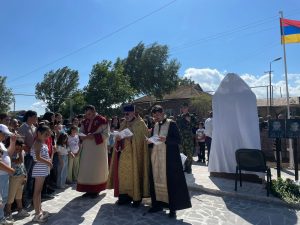 A Cross Stone Dedicated to the Heroes of Artsakh War Was Anointed in Mets Sepasar
A Cross Stone Dedicated to the Heroes of Artsakh War Was Anointed in Mets Sepasar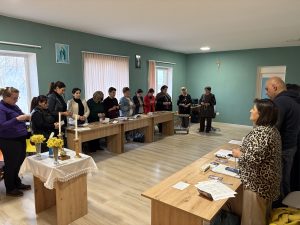 Days of Retreat. Holy Eucharist is the Missionary Pivot of the Legion of Mary
Days of Retreat. Holy Eucharist is the Missionary Pivot of the Legion of Mary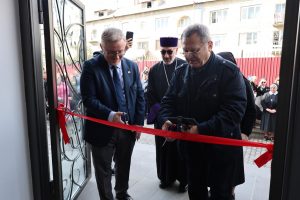 Another Cradle of Charity and Ministry: Inauguration of Diramayr Hayastani Youth Center
Another Cradle of Charity and Ministry: Inauguration of Diramayr Hayastani Youth Center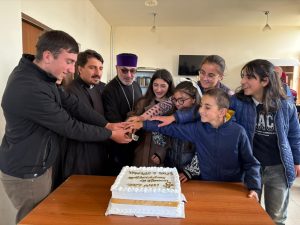 His Excellency Kevork Archbishop Noradounguian served a Holy Mass in St. Nshan church in Bavra
His Excellency Kevork Archbishop Noradounguian served a Holy Mass in St. Nshan church in Bavra
